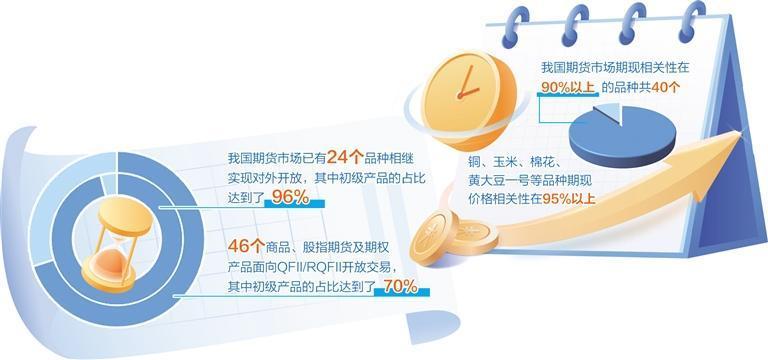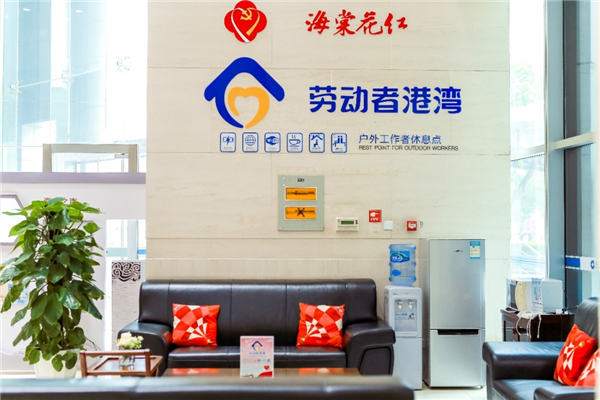Recently, Ms. Chen, who lives in Chaoyang District, Beijing, called to say that she encountered a "consumption trap" in the course of eating - 8 people including Ms. Chen went to a hotpot restaurant to have a meal, and each person was charged 10 yuan for drinks when checking out. Before the meal, the waiter did not tell the consumer that the drinks needed to be charged.
Does this behavior of merchants comply with the law? Have you violated the legitimate rights and interests of consumers? Does the market supervision department need to strengthen supervision? With these questions in mind, the reporter conducted an investigation and interview.
□ Our reporter Sun Tianjiao
□ Chen Li'er, a trainee reporter of our newspaper
"We only drank water during the whole journey. Where did the 10 yuan per person drink from?"
A few days ago, Ms. Chen, who lives in Chaoyang District, Beijing, invited several friends to a hot pot restaurant for dinner. When they checked out, they found that there was an "inexplicable" extra money on the bill - 8 people were charged 80 yuan for drinks.
Ms. Chen asked. The shopkeeper replied that they charged for the lemonade they drank. Ms. Chen remembered that when they were seated, the waiter asked them, "What kind of drink would you like? Lemonade or cranberry juice?" But the waiter didn't mention the charge for the drinks, so they naturally thought lemonade was free.
A few days later, Ms. Chen was still angry when she mentioned this: "The waiter didn't mention the charge for drinks, nor did he say that the store provided free boiled water, but only gave us the option of charging for drinks when introducing drinks. Isn't this a consumption trap?"
According to a recent interview by the reporter of the Legal Daily, like Ms. Chen, there are many consumers who have been charged additional fees when dining in restaurants, including tea seat fees, tableware fees, and the minimum consumption of private rooms. Moreover, this is not only the case in offline restaurants. When consumers order food on the online takeout platform, they also encounter soaring packaging fees and other "unexpected" charges.
Interview experts believe that the above-mentioned so-called "inexplicable" fees are actually implicit charges, forced consumption and other behaviors of businesses. Among them, such as the minimum consumption in private rooms has been expressly prohibited, while packaging fees, tea seat fees, etc. have not been explicitly prohibited, but the merchants do not take the initiative to inform them and force them to collect at the time of checkout, which is suspected of infringing consumers' legitimate rights and interests such as the right to know, the right to independent choice, and the right to fair trade.
You need to pay extra for tableware
Infringement of consumers' rights
"I didn't even drink your water. How did you get the tea fee?"
Recently, Ms. Shen and her friends in Shenzhen City, Guangdong Province found that the merchants had charged 5 yuan for each tea seat without prior notice when they were dining in a chain hotel. However, Ms. Shen and others brought their own drinks to the restaurant that day, without drinking tea.
Ms. Shen, who was very dissatisfied, said to the clerk that she did not drink the tea in the store and the charging items were not notified in advance. She hoped the shopkeeper would refund the tea fee, but the clerk replied that the tea fee was just a general term, "including the use fee of tableware, which must not be refunded if you use tableware".
Ms. Shen could not accept this explanation: "Isn't it proper for businesses to provide tableware? Why should they charge in the name of tea seat fees?"
This is not the first time Ms. Shen has felt headache because of the tea fee.
According to her, in Guangdong, everyone has the custom of drinking tea, and charging for tea seats has become a fixed charge item in major restaurants, with prices ranging from a few yuan to dozens of yuan. "It is understandable that teahouses mainly drink tea will charge for tea seats, but now some catering places where tea does not play an important role, such as fast food restaurants, hotpot restaurants, etc., have begun to charge for tea seats according to the number of people, and the shop owner will not take the initiative to inform the customer of this fee and its details, and the customer will not refund it."
According to the reporter's survey, many consumers have been forced to charge by merchants when they check out, such as tea seat fee, tableware fee, minimum consumption, etc. Search the third-party complaint platform with the above keywords, and there are hundreds of related complaints.
When Ms. Shu from Chengdu, Sichuan Province was organizing the construction of a group company in a local hotel, she found that only packaged tableware was provided on the table, and the outer package said "Paid tableware, 3 yuan for a set". After Ms. Shu raised an objection, the shopkeeper said that free chopsticks could be provided separately, but there was still a charge for dishes.
"At that time, there were many of us. We didn't want to stop arguing with the hotel because of the small amount of money. But shouldn't the store provide free tableware?" Ms. Shu said.
Mr. Zhang, a Beijing citizen, recently hosted a banquet for several old friends in a Zhejiang restaurant, and booked a private room in advance. After dinner that day, the shop owner said, "When making an appointment, there were six people, but only five people came, and they should go according to the minimum cost of 200 yuan per person.". Although Mr. Zhang felt unreasonable, because of his face, he had to order two seafood dishes.
For this phenomenon, Wang Lihua, a partner of Beijing Yinghe Law Firm, believes that forced consumption refers to the act of forcing merchants to sell or add products or services to consumers without explicitly expressing their needs and requiring consumers to buy them. This kind of behavior infringes consumers' right of independent choice and fair trade, which belongs to the behavior of infringing consumers' rights and interests.
In Ren Chao, vice president of the School of Economic Law of East China University of Political Science and Law, it is illegal to force consumption. According to the provisions of the Law on the Protection of the Rights and Interests of Consumers, consumers have the right to choose their own goods or services. A consumer shall have the right to freely choose a business operator providing commodities or services, types of commodity and modes of service and whether to purchase a commodity or receive a service. A consumer shall have the right to fair terms of trade and conditions such as quality guarantee, reasonable price, accurate measures, etc, when purchasing a commodity or receiving a service, and shall have the right to reject coercive transactions by business operators.
"Taking the tea seat fee as an example, many businesses are not clear about the specific service content when collecting the tea seat fee. What exactly is the use of seats, tea or tableware? This has also bred the problem of indiscriminate charging by businesses." Ren Chao said.
Chen Yinjiang, deputy secretary-general of the Consumer Protection Law Research Association of the China Law Society, said that the Ministry of Commerce and the National Development and Reform Commission issued the Measures for the Operation and Management of the Catering Industry (for Trial Implementation) in 2014, clearly prohibiting catering operators from setting minimum consumption. At the same time, businesses set minimum consumption standards to induce customers to order food, which is likely to cause food waste and is suspected of violating the Anti Food Waste Law and the Punishment Measures for Infringement of Consumer Rights and Interests.
In addition, Chen Yinjiang also mentioned that although the tea seat fee and packing fee have not been explicitly prohibited, there has always been a dispute about whether they can be charged. At present, businesses should at least explain the service content to consumers before providing services and inform them of the specific charging standards, which can be chosen by consumers with full knowledge. "Tableware is a necessity for dining in restaurants and a necessary condition for providing catering services. Catering operators have the obligation to provide consumers with clean and disinfected qualified tableware. Restaurants do not provide consumers with free tableware, which is forced to accept unfair trading conditions for consumers."
Take away encounter packaging assassin
The charging items shall be informed in advance
Different from offline dining, the issue of mandatory charges on the online takeaway platform of consumers is more hidden, but it is also unexpected.
Recently, netizens revealed that the issue of "assassins" in takeout packaging has drawn the public's attention: three pieces of pickled eggs packed in ramen parlors were charged three packing fees, but actually the pickled eggs were put in a plastic bag; A barbecue takeout with a total price of 53 yuan cost 7.8 yuan for the lunch box.
The reporter recently inquired about the packing situation of takeout merchants in Beijing, Xi'an, Chengdu, Guangzhou and other places on the takeout platform, and found that some merchants will charge packing box fees separately, which are basically between 1 yuan and 10 yuan. The packing fee of most businesses will increase with the number of orders. If only one set meal is ordered, the packing fee will be more than 1 yuan to 2 yuan. However, if more than one take out items such as barbecue and snacks are ordered, the packing fee may continue to accumulate. Ms. Cui from Zhanjiang, Guangdong once ordered less than 10 barbecues, but the packing fee was 6 yuan.
Ms. Tian, a resident of Chaoyang District, Beijing, has also been stabbed by the packaging costs for ordering takeout barbecues recently. When she ordered a meal in a barbecue shop, she found that the shop had set up a 3 yuan box must choose item, which must be selected to place an order successfully. After clicking to select the packing box, in the payment interface, Ms. Tian accidentally found that she still had to pay 3.5 yuan for packing. It turned out that every time she ordered a bunch of kebabs, the packing fee would increase by 0.1 yuan, which added up to an additional packing fee.
Although the packing fee is "increased layer by layer" in the price, Ms. Tian found that the barbecue packaging was very simple after the delivery of the goods, "it was just wrapped in tin foil, and the oil leaked out".
The reporter searched the third-party complaint platform for "takeaway packing fee". Up to now, there are more than 180 complaints, all of which mention that the takeaway packing fee is too high.
In Ren Chao's opinion, the problem with the delivery packaging fee is that the standard is unclear, and it is now up to the business to decide. For example, on the takeaway platform, some businesses may charge packing fees according to the odd quota, some may add up the packing fees according to the number of meals ordered, and even add a few cents to the packing fees for each order of barbecue. This is extremely unreasonable.
"This situation needs specific analysis of specific problems. Objectively speaking, to ensure that the quality of the takeaway is not affected, businesses must provide corresponding packaging. Some packaging may be relatively simple, but some packaging costs will be relatively high." Chen Yinjiang believes. The key lies in two problems: first, the charging standard should be fair and reasonable, and the packaging provided is simple and crude without high packaging fees; Second, the charging items and standards should be informed to consumers in advance, because the charging items and standards are information that has important interests with consumers, and should be noticed by consumers in a striking way.
He also gave an example: "When ordering barbecue, the merchants usually only prompt how much a series of barbecue strings cost, not how much the corresponding packaging costs, but in fact, the charging standard of this packaging fee can be noted on the order interface through text descriptions, and in the final payment interface, more specific prompts can be given for this accumulated packaging fee."
Improve consumer trading position
Strengthen supervision and promote honest operation
In fact, many places have issued relevant regulations to regulate the problem of forced consumption by merchants.
For example, the Measures of Jiangxi Province for the Implementation of the Law of the People's Republic of China on the Protection of Consumers' Rights and Interests stipulates that food provided by catering operators should meet the quality, safety and hygiene requirements; If the quality, safety and hygiene requirements are not met, causing damage to the health of consumers, the losses shall be compensated according to law. Operators shall clearly indicate the price of food and services they provide, and shall not charge unreasonable fees such as box fees, bottle opening fees, tableware disinfection fees, etc.
Some businesses were also punished for compulsory charges. Recently, the market supervision department of Yangzhou City, Jiangsu Province, completed a case of compulsory collection of tableware fees infringing on the legitimate rights and interests of consumers. A hotel was fined and confiscated more than 41000 yuan due to compulsory collection of more than 36000 yuan of tableware fees. The market supervision department of Mianyang City, Sichuan Province found that the waiter of a restaurant adopted the method of induced ordering, disguised as the marketing mode of minimum consumption in private rooms, violated the right of fair trade of consumers, and induced consumers to order too much food, resulting in food waste. The party concerned was warned and fined 2000 yuan.
Then, since there are clear regulations and lessons learned from the past, why does the phenomenon of forced consumption still occur frequently?
Ren Chao believes that an important reason is that consumers are in a weak position in market transactions, have no ability to negotiate with merchants, and are like "lambs waiting to be slaughtered" in front of the overbearing terms of merchants. Moreover, there is information asymmetry between consumers and businesses, and it is often difficult to identify unfair and unreasonable trading conditions for businesses.
"Just like the tea fee, it was originally unique to restaurants such as Guangdong tea houses, and it is reasonable to charge tea fee from the service content it provides and the consumer's consumption habits. However, other catering operators smell the business opportunity and force consumers to charge tea fee regardless of the actual business situation, which is neither reasonable nor legitimate," Ren Chao said.
Ren Chao also mentioned that compared with the cost of protecting consumers' rights, the unit price of the above charges is not high. Even if consumers realize that their personal rights and interests have been violated, it will often hinder the choice of rights protection costs. In this case, the market supervision department needs to take the initiative to supervise, and consumer rights protection organizations can also take the initiative to represent consumers to complain to the relevant departments or file a lawsuit.
Ren Chao suggested that the relevant departments should continue to improve the relevant laws and regulations, and prohibit operators from making unreasonable charges to consumers. For commodities whose pricing standards are not clear and unified, such as delivery packaging fees, unified pricing standards should be set in a timely manner. We will strengthen active supervision, and promptly investigate and deal with operators' acts of forced consumption, bundled sales, and unclear pricing.
Wang Lihua believes that, in view of the problem of repeated prohibitions of consumer rights violations, we should not only strengthen the legal publicity of consumers to help them enhance their awareness of rights protection, but also improve the consumer public interest litigation system to reduce the cost of consumer rights protection Strengthen the role of trial function in consumer rights protection.
Experts interviewed suggested that the key is to strengthen the integrity of online and offline business entities.
Ren Chao believes that relevant business entities should abide by the provisions of the Law on the Protection of Consumers' Rights and Interests, assume the obligations of business operators, and clearly mark the prices of relevant charges at reasonable prices. The charging items should correspond to the service content one by one, so as to ensure that the restaurant does provide the service to consumers, rather than charging for the service in name only. If the consumers clearly express that they will not accept or use the relevant services, the operators cannot charge for them, nor can they force the consumers to pay the relevant fees. The necessary conditions for providing catering services, such as tableware and seats during meals, should not be charged extra. Free sterilized tableware and qualified packaging containers should also be provided while providing paid tableware and packaging containers.
"For online takeout operators, pricing should follow the principles of fairness, legality, honesty and credibility. The prices of goods sold and packaging fees should be true and reasonable, and the actual prices of goods should not be transferred to packaging fees after being diverted by unreasonable low price goods," Ren said.
Chen Yinjiang called on the takeaway platform to take into account the legitimate interests of itself, businesses and consumers when formulating rules. If there are obviously unreasonable charging standards for businesses on the platform, timely measures should be taken to stop and guide them. If the platform does not take necessary measures for some businesses that will damage the legitimate rights and interests of consumers, it may also bear joint and several liability.
key word: consumer
Tea seat fee
business
tableware





